Tessa Foley: 'I like to be as honest as possible'
- samszanto2
- Jul 31, 2025
- 6 min read
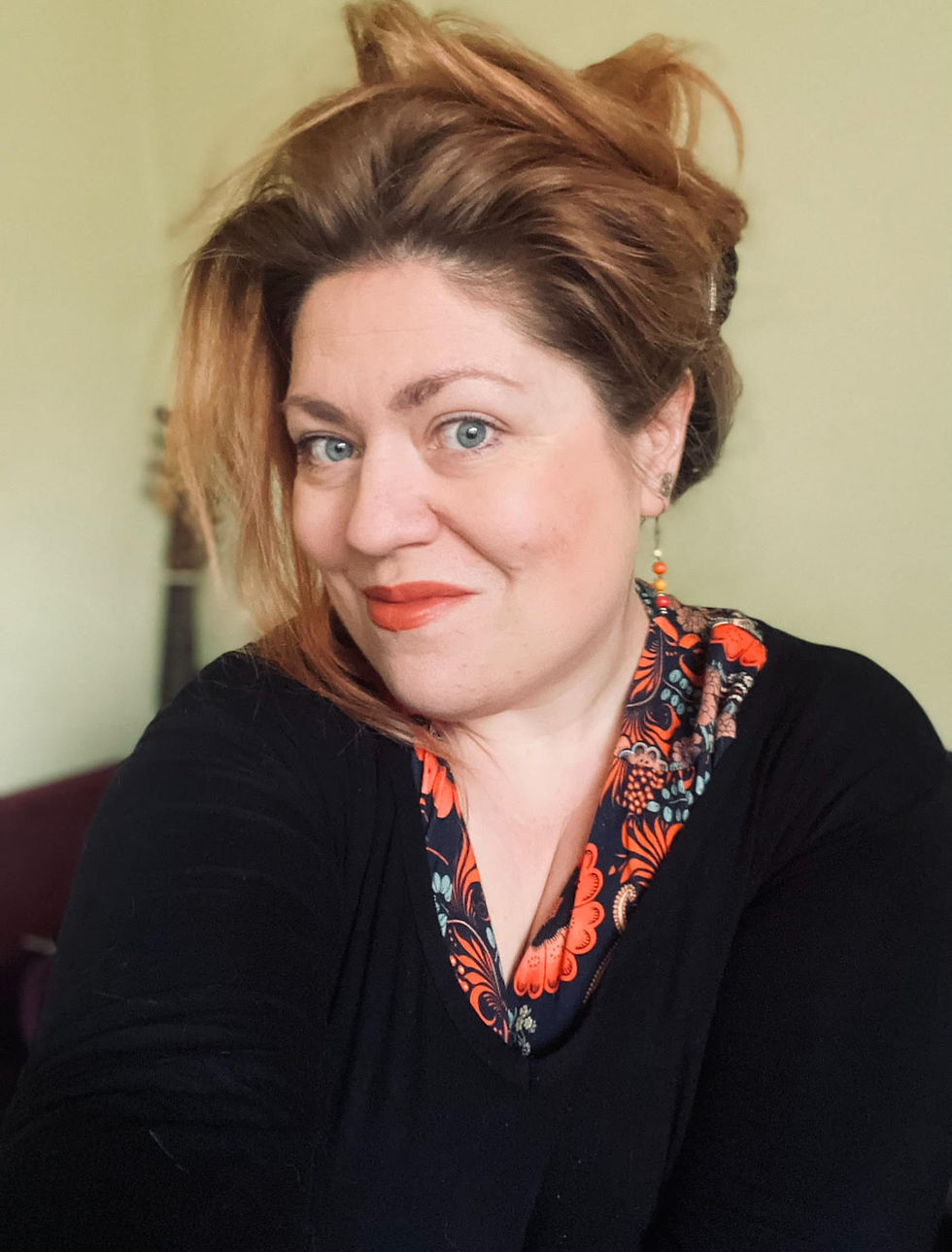
A chat with Tessa Foley about her poetry collection Try To Find Me (Live Canon, 2024)
How would you describe Try To Find Me in one sentence?
A slightly comical ramble through deep-seated trauma, working-class routine and feminist anger.
Would you say the book has a theme?
There is much more about childhood in it than I realised whilst writing the poems. As a personal theme, there is a lot of reflection and when I look at the book, I realise that I have processed a lot by revisiting the past in the last few years. In that respect, its theme is actually me sorting through jumble of the years, looking for myself. The book cover which was designed by my sister Anna Foley is actually a collage based on a photo of me when I was a small child but you’ll notice there is a big hole in the middle of my/her body. There is a theme of trying to work out what the hole is and what replaces the emptiness or even if the hole is a bad thing in the first place!
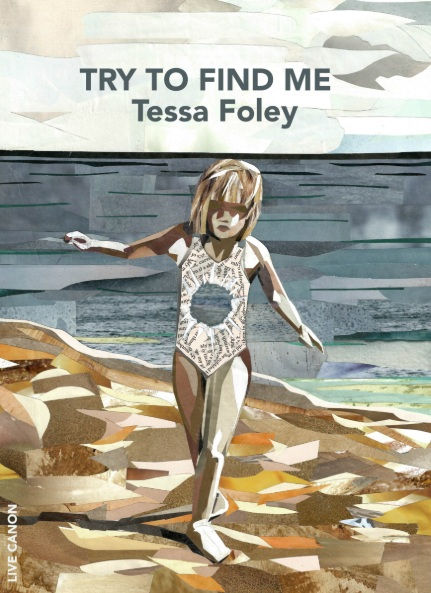
How did you choose a publisher?
Back in 2013, I won the Live Canon single poem competition, thus beginning a long relationship of publication. The Director of Live Canon Dr Helen Eastman has always really understood my work and in addition to that, tends to have madly creative ideas to share poetry. Whilst Live Canon is a publisher, it’s so many other things too and that’s what I love about it. There’s certainly a few weird and wonderful things like art exhibits, performance films and lecture concerts that I’ve been involved with as part of that family, which is incredibly stimulating and fun.
I love the title, with its potential for double-reading. How did you come up with it?
I tend to go through the poems as a collection once it is in draft and see what jumps out as a standalone phrase that can then be bastardised! This came from ‘Your Call’ which ends with the line ‘you could always try to find them if you like’. It’s a very personal title because it is both a direct plea to the outside world for a rescue or understanding of some kind and also a request for the reader to recognise the voice in the poetry.
Additionally, it’s what my friend Sid once said, calling me after we’d had a night out together, when he woke up on the front seat of a used car that was for sale on a forecourt. Neither of us knew how he got there but he asked ‘Will you try to find me?’. I’ve never quite gotten over it.
Your collection has a great epitaph, ‘Those who can, do; / those who can do magic, teach.’ I know you teach as well as write; how does your teaching inform your poetic practice and vice versa?
I have taught some workshops and done a bit of tutoring on an undergraduate performance poetry module so don’t claim to be in the same league as the greats who are named in my dedication. But my belief when it comes to poetry, is that it’s possible for anyone and that everyone’s opinion on it is valid and so the encouragement of a lot of free and frank discussion within the classroom is something that lingers when I am writing. I try and be frank with myself about what works and what doesn’t and also try not be too hard on myself.
These feel like very embodied poems, and I wonder if you have any thoughts on how the body in the poem and the body of the poem work together?
This is a really interesting question and I have been thinking about the answer for a while! I have been doing a lot of work on locating emotion within the body – feeling memories in the elbows and other weird sensations and work often comes out of these moments. I think in that respect, I have become more conscious of the use of space in form, which is related to that space in which both the speaker and the audience can breathe and release those tensions or traumas.
How is this book similar to those you’ve written before?
I think that I am always very consciously writing as a woman but as a woman with a bit of a chequered background so I like to bring in what some people might consider a bit mundane or bleak, but if I can, I try and bring in the humour too. And I like to be as honest as possible so if there is ever a running theme in my books, it’s ‘You know what, I am fed up of secrets so bleuuurggh’.
There’s such a great flow of sound through the poems in the collection, and I know you do a lot of performance work which must feed into that – is there a poem in the collection that you most enjoy reading?
I’m a sucker for the internal rhyme which does actually help when reading. I even mention internal rhyme in what I think is my favourite poem to read ‘From One who would not be Forty’ which is about a friend I had at School, Lizzie who died when she was 38. It’s in her voice as I imagine it, scolding me a bit for not acting my age and then revealing that she was only joking and that I should throw myself into life, if not for me then for her. I often can’t help but crack toward the end just as it’s good to hear her speaking even if it is through me.
Which poets inspire your work?
Everything I ever read by Jenny Mitchell makes me want to be a better poet and really push boundaries, and I am always waiting to see what she will do next. I am constantly looking at Caroline Bird as well who has this endless pit of originality that she keeps yanking stuff out of, on top of which when she teaches workshops, she comes up with the most insanely brilliant prompts; she always reminds me that poetry can be so exciting and that love for it is crucial. And I shan’t start talking about Joelle Taylor or I will never shut up…
If you could have a blurb from anyone, alive or dead, who would it be?
First of all, it would have to be the poet who judged the first poetry competition that I ever won and has been a supporter, colleague and friend since, The Time Lord of poetry – Glyn Maxwell.
And also one of the greatest voices in poetry today and frankly the best person with whom to drink tea and talk about hope and change - Fran Lock. And they did the blurbs for Try to Find me so I got my wish.
What has the response been to the collection?
I have had some really kind words about the book and a couple of beautiful reviews in Alchemy Spoon and the London Grip. But I guess you never know quite how it’s going until you’re looking back on it.
Do you have any current poetic projects on the go?
I have two pamphlets that are both in the late editing stages, one of which is about funerals which is more fun than it sounds, I hope. And also one that is themed on one single night on the town incorporating some themes of friendship and loss.
Buy the book here https://www.livecanon.co.uk/store/product/try-to-find-me-tessa-foley
Read two of Tessa's poems below:
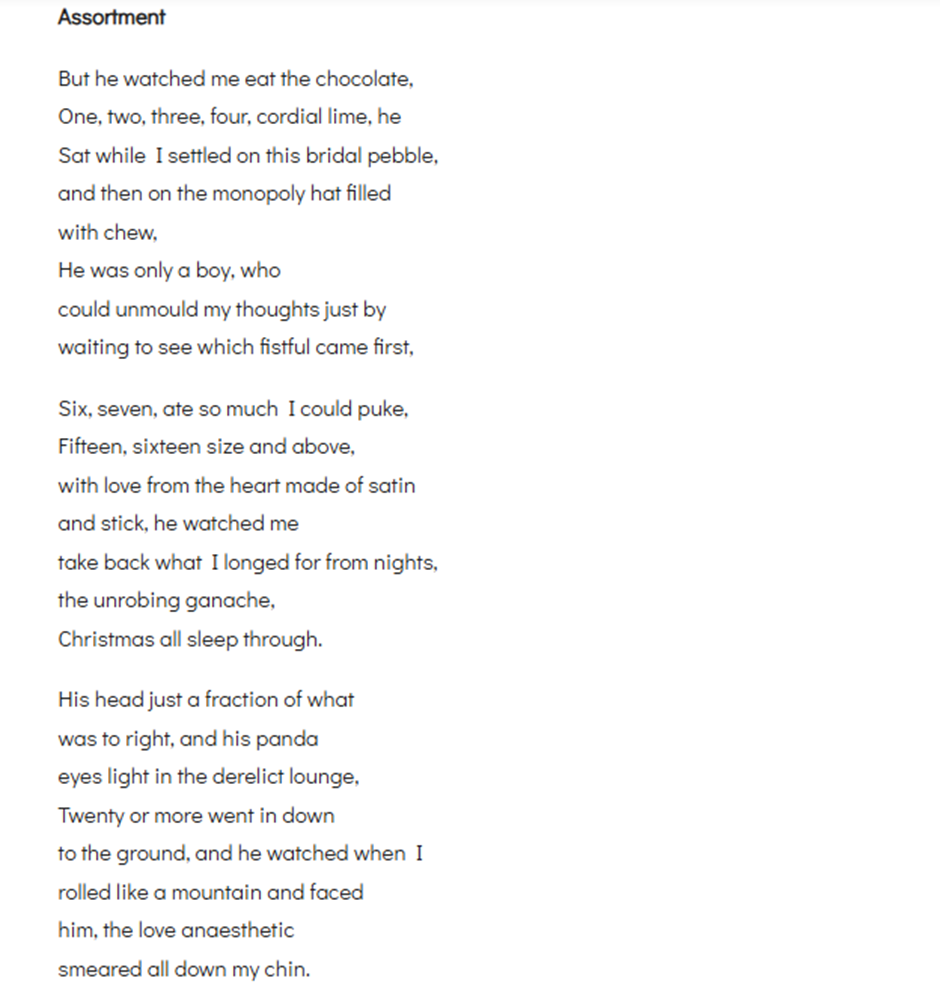
Dry Missus
The ants in her pants grew up and got jobs,
odds and split ends she used to be sporting,
they’re courting their own pinky problems now,
and she turns, says
'what do you think about the fence?'
Deep inside you drop a lung, it's wrong
to ignore her now she's dull,
Past her last pin drop of rum, her dance
when she would shake her bum
up and down on tumble dries, and now she cries
only when the washing runs,
she didn't come mail order with her bling, it was glass
twinkling in the mirrored bars,
a grin gin pointillisted on,
So is she plain now she is dry?
Flat without the bubbles wink, the lingo that she
longs to sing all mono now and
now she speaks as if you’re you,
not blurry rag who hears her self -same single song
the one she played repeat, her staggering golden olds,
straight, she’s not quite bold enough,
Gone is lurking rough behind the skip, and now
she asks 'How far is the nearest tip?',
she drives and thinks of kiddie ken, her men who fanned
the opal eyes, they plop-fizzed into temperance,
She’s now not ringing bells for balls,
You love her now she's standing tall?
Gauge her fairer than them all?
now she googs and finds the word ‘drywall’,
doesn't wear the splintered shoals, sober days are
baked potato slow but years they fall away like jukebox notes,
the strongest case of music when you watch her float -
You love her now she's living.





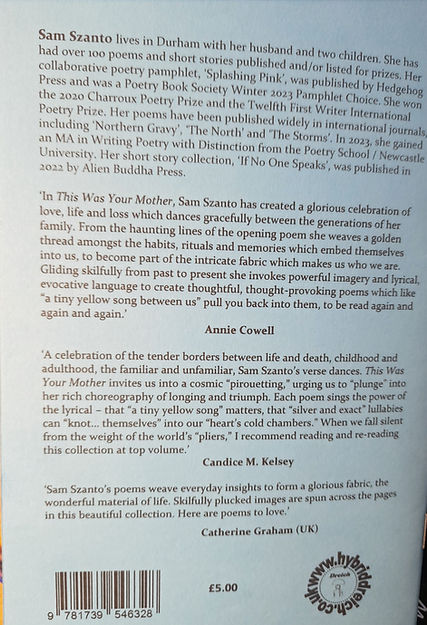
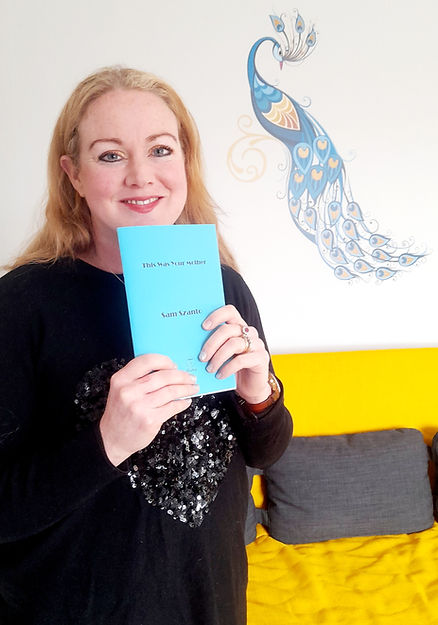



Comments